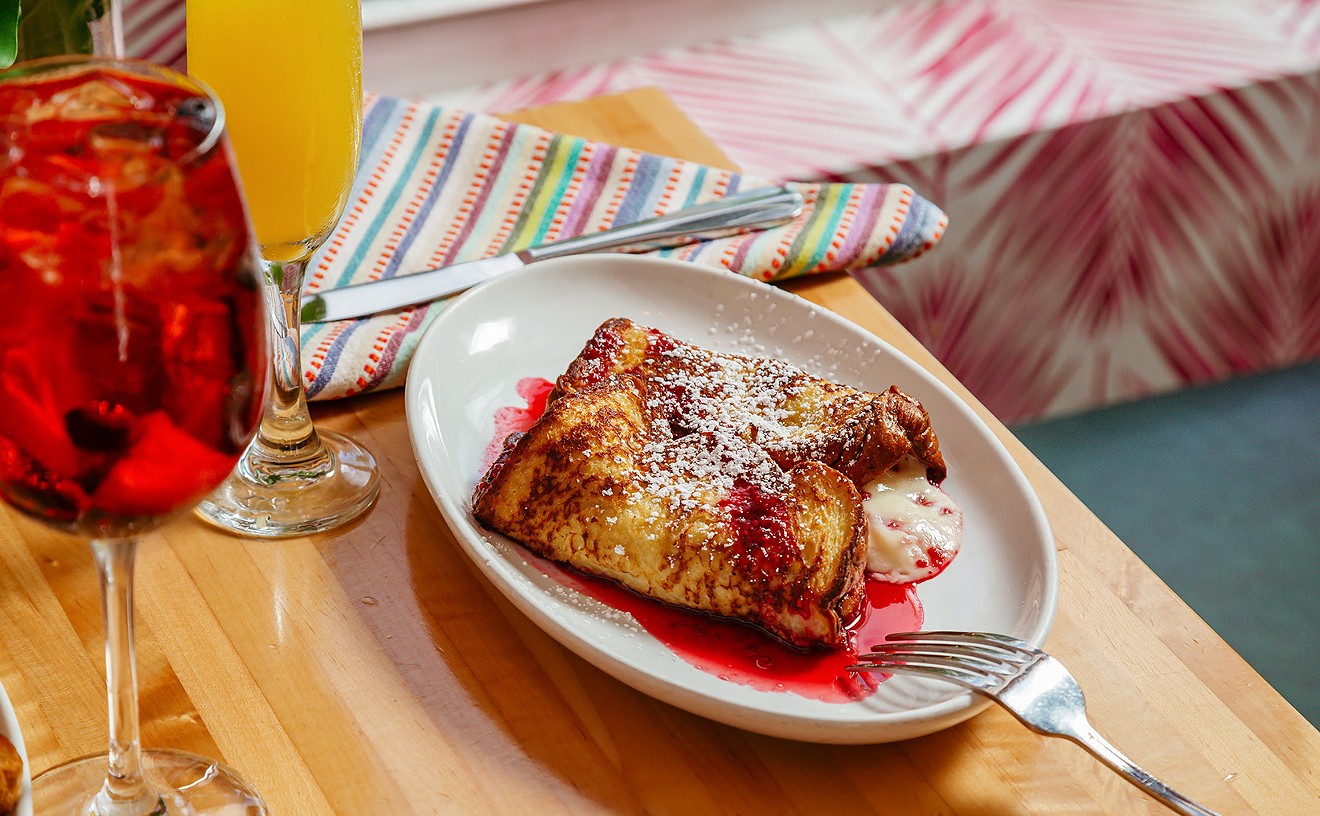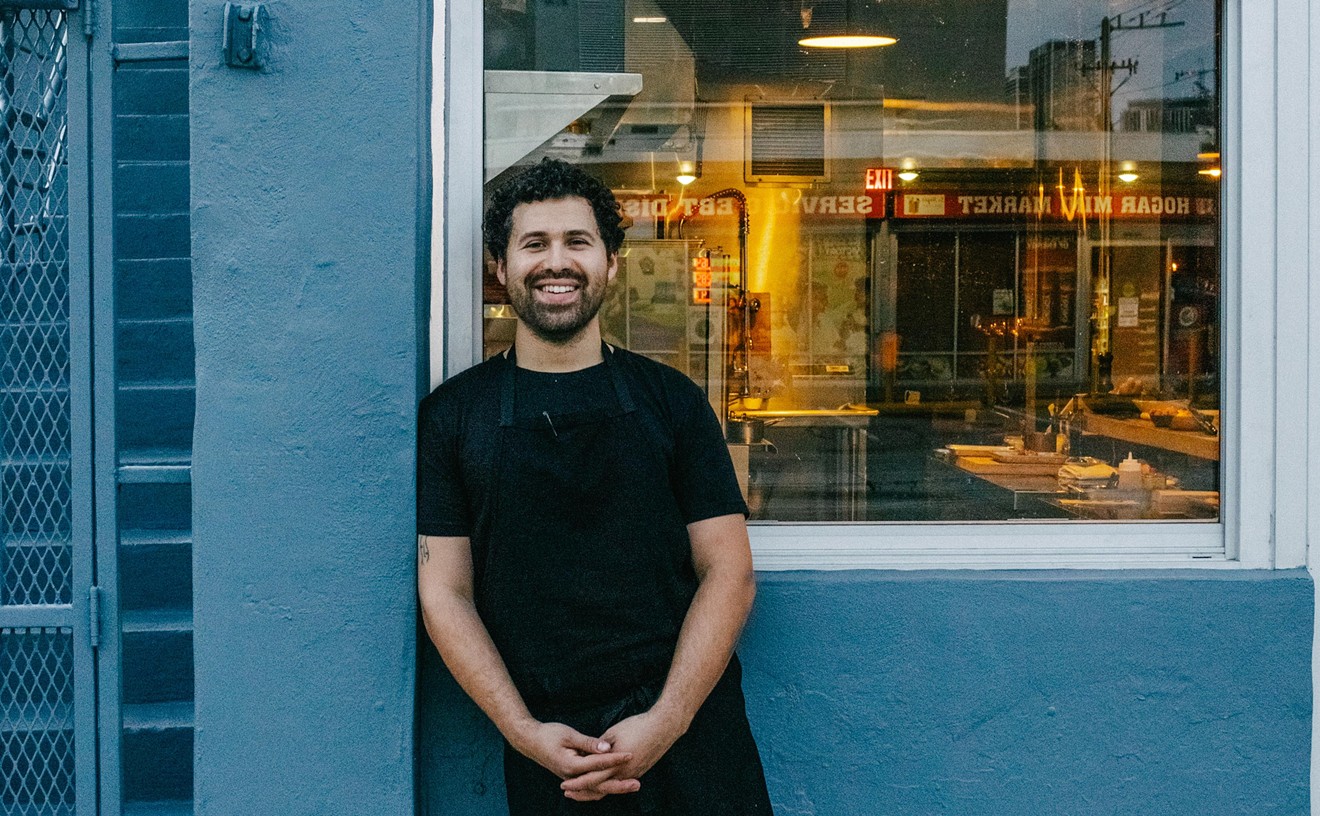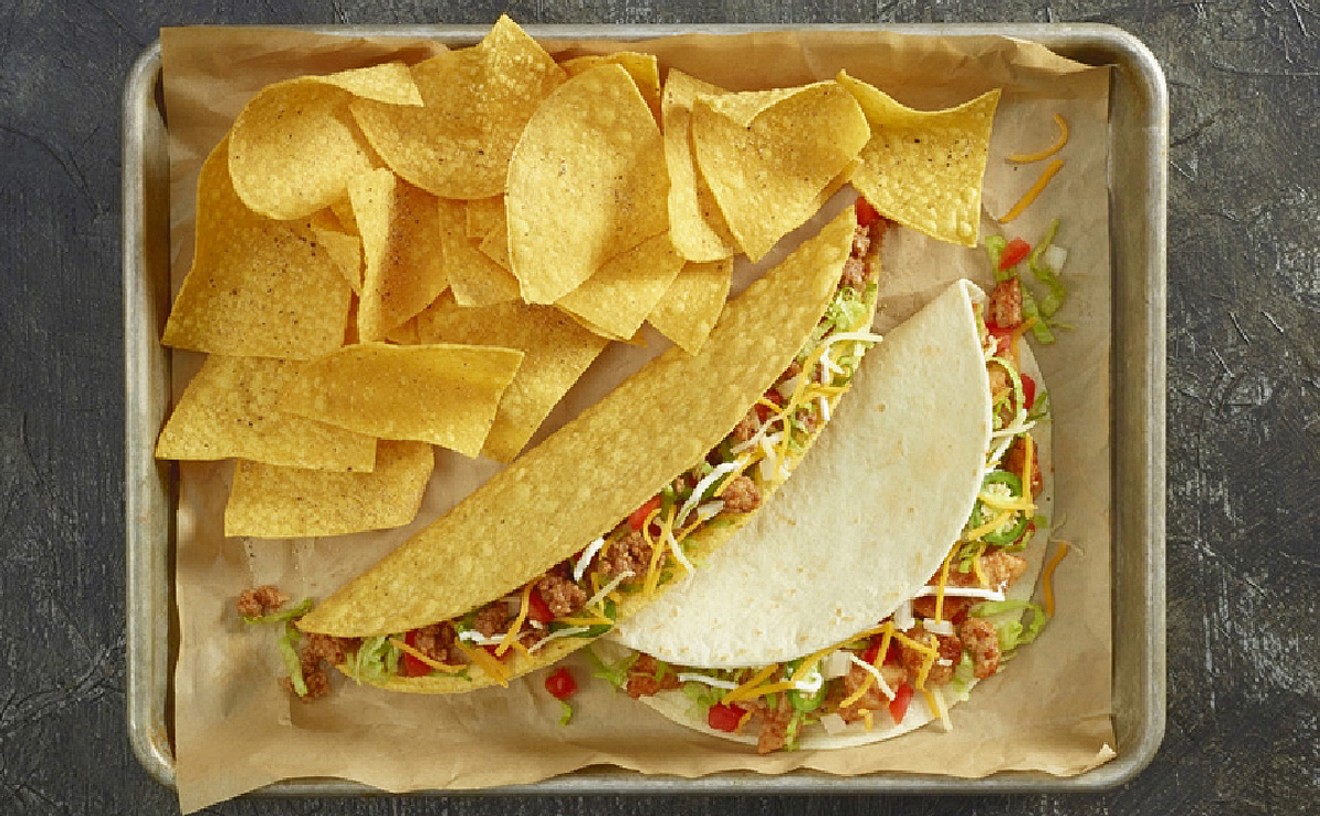The truth was, North Beach had actually entered a serious decline, inversely correlative to South Beach's progress. The low-income housing in the shabby buildings to the north became a haven for the folks who could hardly afford the gentrified apartments in the south. In NoBe they felt right at home: There the streets were still dirty, the sidewalks still crumbling. The sewer systems remained old and malfunctioning. Restaurants would move in, lured by the cheap(er) rents, but most were little ethnic joints like Brazil Delicious that, while good, attracted limited attention in the long run. And when the going got tough the tough went under. So no matter how many rumors flew, residents and tourists alike just weren't buying into the myth of North Beach as an entertainment destination.
Enter the North Beach Development Corporation (NBDC), a nonprofit organization that was started in 1988 by a 30-member board of directors dedicated to looking at North Beach through rose-colored contact lenses. Their efforts, which included major streetscape improvement projects and business rejuvenation, were barely noticeable for many years. But a decade or so later, North Beach, it seems, has arrived for real.
Need proof? Head over to the renovated area around Normandy Fountain, at about 9:00 p.m., and you'll see something startling, something you never would have seen a few years ago: pedestrians. Yup, people are actually strolling around the neighborhood, stopping in for a drink at the new Spice resto-lounge, or simply breathing the cooler night air around the fountain. Soon, unless the project gets tabled owing to insurmountable difficulties with contractors -- a very real possibility, according to NBDC executive director Donald Shockey -- these same folks can go shopping, see a movie, or attend a performance at a dedicated black-box theater. Indeed the community voted to have a four-acre tract of land set aside for this very purpose. Also planned: the North Shore Park and Youth Center, which will boast new basketball and tennis courts; Normandy Isle Park, which will be refurbished with a state-of-the-art aquatic center and outdoor skating facility; and North Shore Open Space Park, which will feature nature trails, a nature center, and a turtle hatchery.
Of course as with any accomplishment, North Beach isn't an overnight triumph. After the extensive roadwork finally was completed, it took NBDC years of lobbying to have North Beach's distinctive buildings on Ocean Terrace, designed in the Fifties style dubbed Miami Modernism, declared a historic district. In 1996 the organization succeeded in having a three-block stretch listed on the national register as Harding Town Site, and now the challenge lies in revitalizing the district. “There are still abandoned buildings. It's definitely a work in progress,” admits Shockey. “But Ocean Terrace has the potential to become a smaller version of Ocean Drive.”
And as with any successful neighborhood rejuvenation, there were the retail prophets, like Gerardo Cea and family, who started Café Prima Pasta seven years ago, and several months ago opened the velvet-rope-draped Spice. Or Christian Hermant, proprietor of Lemon Twist, who was lauded for bringing the first truly stylish dining room to NoBe. These men shared the vision of NBDC and continue to lobby tirelessly for their region. Cea has such a neighborhood rallying cry, notes Juan Pino, proprietor of Baraboo, a chic eatery that recently debuted in North Beach -- and the first to open in an historic building -- that he even shares his customers. “The other night Gerardo sent a big party over to Baraboo, even though his own restaurant wasn't full,” Pino explains. “He has the spirit of partnership rather than competition.”
Cea's efforts may be just the ticket needed to keep North Beach fresh in the eyes of the diner. Because in this age of entitlement, cynical consumers tend to judge a region's true viability by how many trendy dining establishments exist per block: If there's only a couple of now-familiar places to eat, what's the point in going? Fortunately it's in this department that North Beach has been making real strides. In addition to Argentine steak house favorites like Las Vacas Gordas and Tango Beef Café, North Beach has become home to a good few restaurants that easily could have passed muster on South Beach: Spice, Baraboo, and the brand-new Tetuán, a Mediterranean eatery with Latin influences (think duck with tamarind sauce or pork with passion-fruit sauce). Several other sophisticated restaurants, including a Mexican eatery, an Italian trattoria, and a French café currently being called Gardens of Paris, are forthcoming in the fall. Suddenly can you say season?
Thanks to Harding Town Site, Ocean Terrace, and the rash of restaurants, seasonal or otherwise (not to mention rents that are certainly on the rise), it's apparent that comparisons of North Beach to South Beach are now, finally, in order. Ironically, though, North Beachers disdain the metaphor. Rather than be analogous to it, they'd rather their restaurants be the answer to South Beach eateries. Says Pino: “We don't want to turn North Beach into South Beach. We just want to extrapolate the happiness that South Beach has and put it in a more sophisticated environment.”
Dindy Yokel, perhaps the first and only high-profile public relations and marketing professional to represent North Beach restaurants, agrees that North Beach has its own character. “It's a hot area for people who live in places like Aventura, who like [the kind] of restaurants in South Beach but who don't like to drive that far,” she says. “It's for family people who don't want the insanity or complications of South Beach.” Yokel points to an abundance of free parking as one bonus to North Beach. “I haven't had to valet yet.” she observes.
The restaurant owners also like the challenge of remaking the neighborhood. In his press releases, Cea is now being referred to as “the pioneer of the new frontier.” First-time restaurateur Pino claims that “when you're an entrepreneur, you look for opportunities.... Going to South Beach would probably be easier in terms of success, but it wouldn't have the flavor or the challenge that entrepreneurship requires.” And chef and general manager of Tetuán, Carlos Santos, acknowledges that he and owners Pedro Hermida and Arturo Osorio were “looking for someplace that is going to develop in the future,” and that they themselves “as customers were tired of going to South Beach.”
Nor do the proprietors necessarily desire the kind of patrons that buzz around South Beach eateries, regardless of whatever velvet ropes and mod décor they might construct. When confronted with a table of Bee Gees-related celebrities who didn't want to behave themselves, Pino didn't mince words: To their faces he told them their actions weren't appropriate in Baraboo. He doesn't expect to see those particular customers again. But then, he doesn't want to. “We're not looking for party people,' he says simply. “You don't have to be rich or sophisticated. You just have to be nice. If you have a smile on your face, you're welcome here.”










